Green tea (Camellia sinensis) for the prevention of cancer
- PMID: 32118296
- PMCID: PMC7059963
- DOI: 10.1002/14651858.CD005004.pub3
Green tea (Camellia sinensis) for the prevention of cancer
Abstract
Background: This review is an update of a previously published review in the Cochrane Database of Systematic Reviews (2009, Issue 3).Tea is one of the most commonly consumed beverages worldwide. Teas from the plant Camellia sinensis can be grouped into green, black and oolong tea, and drinking habits vary cross-culturally. C sinensis contains polyphenols, one subgroup being catechins. Catechins are powerful antioxidants, and laboratory studies have suggested that these compounds may inhibit cancer cell proliferation. Some experimental and nonexperimental epidemiological studies have suggested that green tea may have cancer-preventative effects.
Objectives: To assess possible associations between green tea consumption and the risk of cancer incidence and mortality as primary outcomes, and safety data and quality of life as secondary outcomes.
Search methods: We searched eligible studies up to January 2019 in CENTRAL, MEDLINE, Embase, ClinicalTrials.gov, and reference lists of previous reviews and included studies.
Selection criteria: We included all epidemiological studies, experimental (i.e. randomised controlled trials (RCTs)) and nonexperimental (non-randomised studies, i.e. observational studies with both cohort and case-control design) that investigated the association of green tea consumption with cancer risk or quality of life, or both.
Data collection and analysis: Two or more review authors independently applied the study criteria, extracted data and assessed methodological quality of studies. We summarised the results according to diagnosis of cancer type.
Main results: In this review update, we included in total 142 completed studies (11 experimental and 131 nonexperimental) and two ongoing studies. This is an additional 10 experimental and 85 nonexperimental studies from those included in the previous version of the review. Eleven experimental studies allocated a total of 1795 participants to either green tea extract or placebo, all demonstrating an overall high methodological quality based on 'Risk of bias' assessment. For incident prostate cancer, the summary risk ratio (RR) in the green tea-supplemented participants was 0.50 (95% confidence interval (CI) 0.18 to 1.36), based on three studies and involving 201 participants (low-certainty evidence). The summary RR for gynaecological cancer was 1.50 (95% CI 0.41 to 5.48; 2 studies, 1157 participants; low-certainty evidence). No evidence of effect of non-melanoma skin cancer emerged (summary RR 1.00, 95% CI 0.06 to 15.92; 1 study, 1075 participants; low-certainty evidence). In addition, adverse effects of green tea extract intake were reported, including gastrointestinal disorders, elevation of liver enzymes, and, more rarely, insomnia, raised blood pressure and skin/subcutaneous reactions. Consumption of green tea extracts induced a slight improvement in quality of life, compared with placebo, based on three experimental studies. In nonexperimental studies, we included over 1,100,000 participants from 46 cohort studies and 85 case-control studies, which were on average of intermediate to high methodological quality based on Newcastle-Ottawa Scale 'Risk of bias' assessment. When comparing the highest intake of green tea with the lowest, we found a lower overall cancer incidence (summary RR 0.83, 95% CI 0.65 to 1.07), based on three studies, involving 52,479 participants (low-certainty evidence). Conversely, we found no association between green tea consumption and cancer-related mortality (summary RR 0.99, 95% CI 0.91 to 1.07), based on eight studies and 504,366 participants (low-certainty evidence). For most of the site-specific cancers we observed a decreased RR in the highest category of green tea consumption compared with the lowest one. After stratifying the analysis according to study design, we found strongly conflicting results for some cancer sites: oesophageal, prostate and urinary tract cancer, and leukaemia showed an increased RR in cohort studies and a decreased RR or no difference in case-control studies.
Authors' conclusions: Overall, findings from experimental and nonexperimental epidemiological studies yielded inconsistent results, thus providing limited evidence for the beneficial effect of green tea consumption on the overall risk of cancer or on specific cancer sites. Some evidence of a beneficial effect of green tea at some cancer sites emerged from the RCTs and from case-control studies, but their methodological limitations, such as the low number and size of the studies, and the inconsistencies with the results of cohort studies, limit the interpretability of the RR estimates. The studies also indicated the occurrence of several side effects associated with high intakes of green tea. In addition, the majority of included studies were carried out in Asian populations characterised by a high intake of green tea, thus limiting the generalisability of the findings to other populations. Well conducted and adequately powered RCTs would be needed to draw conclusions on the possible beneficial effects of green tea consumption on cancer risk.
Copyright © 2020 The Cochrane Collaboration. Published by John Wiley & Sons, Ltd.
Conflict of interest statement
TF: none known MM: none known FB: none known AAI: none known SF: none known MH: none known MV: none known
Figures
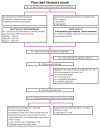

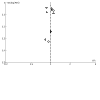

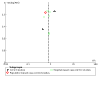





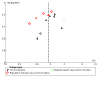
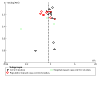


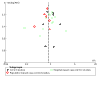
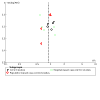
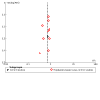








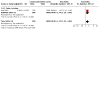
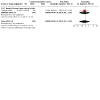

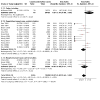


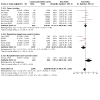

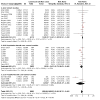
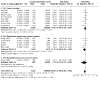

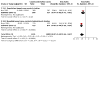



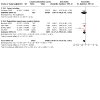








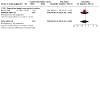

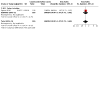
Update of
-
Green tea (Camellia sinensis) for the prevention of cancer.Cochrane Database Syst Rev. 2009 Jul 8;2009(3):CD005004. doi: 10.1002/14651858.CD005004.pub2. Cochrane Database Syst Rev. 2009. Update in: Cochrane Database Syst Rev. 2020 Mar 2;3:CD005004. doi: 10.1002/14651858.CD005004.pub3. PMID: 19588362 Free PMC article. Updated.
References
References to studies included in this review
Allen 2004 {published data only}
-
- Allen NE, Sauvaget C, Roddam AW, Appleby P, Nagano J, Suzuki G, et al. A prospective study of diet and prostate cancer in Japanese men. Cancer Causes & Control 2004;15(9):911-20. - PubMed
Bandera 2010 {published data only}
Berroukche 2012 {published data only}
-
- Berroukche A, Bendahmane M, Kandouci BA. Association of diet with the risk of prostate cancer in Western Algeria. Oncologie 2012;14(12):674-8.
Bettuzzi 2006 {published data only}
-
- Bettuzzi S, Brausi M, Rizzi F, Castagnetti G, Peracchia G, Corti A. Chemoprevention of human prostate cancer by oral administration of green tea catechins in volunteers with high-grade prostate intraepithelial neoplasia: a preliminary report from a one-year proof-of-principle study. Cancer Research 2006;66(2):1234. - PubMed
-
- Brausi M, Rizzi F, Bettuzzi S. Chemoprevention of human prostate cancer by green tea catechins: two years later. A follow-up update. European Urology 2008;54(2):472-3. - PubMed
Bonner 2005 {published data only}
-
- Bonner MR, Rothman N, Mumford JL, He X, Shen M, Welch R, et al. Green tea consumption, genetic susceptibility, PAH-rich smoky coal, and the risk of lung cancer. Mutation Research 2005;582(1-2):53-60. - PubMed
Chen 2011 {published data only}
-
- Chen Z, Chen Q, Xia H, Lin J. Green tea drinking habits and esophageal cancer in southern China: a case-control study. Asian Pacific Journal of Cancer Prevention 2011;12(1):229-33. - PubMed
Chen 2017a {published data only}
-
- Chen F, He B, Huang J, Liu F, Yan L, Hu Z, et al. Effect of tea on oral cancer in nonsmokers and nondrinkers: a case-control study. Zhonghua Yu Fang Yi Xue za Zhi [Chinese Journal of Preventive Medicine] 2015;49(8):683-7. - PubMed
-
- Chen F, He B-C, Yan L-J, Liu F-P, Huang J-F, Hu Z-J, et al. Tea consumption and its interactions with tobacco smoking and alcohol drinking on oral cancer in southeast China. European Journal of Clinical Nutrition 2017;71(4):481-5. - PubMed
Chyou 1993 {published data only}
-
- Chyou PH, Nomura AM, Stemmermann GN. A prospective study of diet, smoking, and lower urinary tract cancer. Annals of Epidemiology 1993;3(3):211-6. - PubMed
Dai 2010 {published data only}
Dostal 2015 {published data only}
-
- Samavat H, Dostal AM, Wang R, Bedell S, Emory TH, Ursin G, et al. The Minnesota Green Tea Trial (MGTT), a randomized controlled trial of the efficacy of green tea extract on biomarkers of breast cancer risk: study rationale, design, methods, and participant characteristics. Cancer Causes & Control 2015;26(10):1405-19. - PMC - PubMed
-
- Samavat H, Ursin G, Emory TH, Lee E, Wang R, Torkelson CJ, et al. A randomized controlled trial of green tea extract supplementation and mammographic density in postmenopausal women at increased risk of breast cancer. Cancer Prevention Research (Philadelphia, Pa.) 2017;10(12):710-8. [PMID: ] - PMC - PubMed
Dryden 2013 {published data only}
-
- Dryden GW, Lam A, Beatty K, Qazzaz HH, McClain CJ. A pilot study to evaluate the safety and efficacy of an oral dose of (-)-epigallocatechin-3-gallate-rich polyphenon E in patients with mild to moderate ulcerative colitis. Inflammatory Bowel Diseases 2013;19(9):1904-12. - PubMed
Fu 2013 {published data only}
-
- Fu JY, Gao J, Zhang ZY, Zheng JW, Luo JF, Zhong LP, et al. Tea consumption and the risk of oral cancer incidence: a case-control study from China. Oral Oncology 2013;49(9):918-22. - PubMed
Galanis 1998 {published data only}
-
- Galanis DJ, Kolonel LN, Lee J, Nomura A. Intakes of selected foods and beverages and the incidence of gastric cancer among the Japanese residents of Hawaii: a prospective study. International Journal of Epidemiology 1998;27(2):173-80. - PubMed
-
- Galanis DJ, Lee J, Kolonel LN. The influence of cigarette smoking, alcohol, and green tea consumption on the risk of carcinoma of the cardia and distal stomach in Shanghai, China. Cancer 1997;79(9):1840-1. [PMID: ] - PubMed
Gao 1994 {published data only}
-
- Gao YT, McLaughlin JK, Blot WJ, Ji BT, Dai Q, Fraumeni JF Jr. Reduced risk of esophageal cancer associated with green tea consumption. Journal of the National Cancer Institute 1994;86(11):855-8. - PubMed
Gao 2005 {published data only}
-
- Gao J, Xiang YB, Xu WH, Shao CX, Ruan ZX, Cheng JR, et al. Green tea consumption and the risk of endometrial cancer: a population-based case-control study in urban Shanghai. Zhonghua Liu Xing Bing Xue za Zhi 2005;26(5):323-7. [PMID: ] - PubMed
Garcia 2014 {published data only}
-
- Garcia FA, Cornelison T, Nuño T, Greenspan DL, Byron JW, Hsu CH, et al. Results of a phase II randomized, double-blind, placebo-controlled trial of Polyphenon E in women with persistent high-risk HPV infection and low-grade cervical intraepithelial neoplasia. Gynecologic Oncology 2014;132(2):377-82. - PMC - PubMed
-
- Nuno T, Garcia FA, Cornelison T, Mitchell AL, Greenspan DL, Byron JW, et al. Results of a phase II randomized, double-blind, placebo controlled trial of Polyphenon E in women with persistent high-risk HPV infection and low-grade cervical intraepithelial neoplasia. Cancer Prevention Research (Philadelphia, Pa.) 2013;6(11):Suppl. 1. - PMC - PubMed
Garland 2006 {published data only}
-
- Garland LL, Chow HS, Einspahr J, Harris RB, Buckmeier J, Tobar M, et al. Phase III trial of chemoprevention of lung carcinogenesis using green tea beverage and tea polyphenols. Journal of Clinical Oncology 2006;24(18S):10262006.
-
- NCT00363805. Green tea or Polyphenon E in preventing lung cancer in former smokers with chronic obstructive pulmonary disease. ClinicalTrials.gov 2006:NCT00363805.
Gavrilas 2018 {published data only}
-
- Gavrilas L, Ciobarc AD, Revnic C, Ionescu C, Miere D. Importance of food groups rich in bioactive dietary components in colorectal cancer prevention. Clujul Medical 2017;90(Supplement 6):S135.
-
- Gavrilas LI, Ionescu C, Balacescu O, Muresan D, Revnic C, Lorena Filip L, et al. Intake of plant based foods and colorectal cancer. A case-control study in Romania. Bulletin UASVM Food Science and Technology 2018;75(2):1-8. [DOI: 10.15835/buasvmcn-fst: 2018.0005]
Goodman 2003 {published data only}
-
- Goodman MT, Tung KH, McDuffie K, Wilkens LR, Donlon TA. Association of caffeine intake and CYP1A2 genotype with ovarian cancer. Nutrition and Cancer 2003;46(1):23-9. - PubMed
Goto 1990 {published data only}
-
- Goto R, Masuoka H, Yoshida K, Mori M, Miyake H. A case control study of cancer of the pancreas. Gan No Rinsho 1990;Spec No:344-50. - PubMed
Green 2014 {published data only}
Hakim 2000 {published data only}
-
- Hakim IA, Harris RB, Weisgerber UM. Tea intake and squamous cell carcinoma of the skin: influence of type of tea beverages. Cancer Epidemiology, Biomarkers & Prevention 2000;9(7):727-31. - PubMed
Han 2008 {published data only}
-
- Han R-Q, Zhao J-K, Liu A-M, Wu M, Wamng P-H. The effect of green tea and its possible interactions with relevant factors on lung cancer in Dafeng county, Jiangsu province, China. Acta-Universitatis Medicinalis Nanjing 2008;28(3):354.
Hemelt 2010 {published data only}
-
- Hemelt M, Hu Z, Zhong Z, Xie LP, Wong YC, Tam PC, et al. Fluid intake and the risk of bladder cancer: results from the South and East China case-control study on bladder cancer. International Journal of Cancer 2010;127(3):638-45. - PubMed
Hoshiyama 1992 {published data only}
Hsu 2012 {published data only}
Huang 1999 {published data only}
-
- Huang X, Tajima K, Hamajima N, Inoue M, Takezaki T, Kuroishi T, et al. Effect of life styles on the risk of subsite-specific gastric cancer in those with and without family history. Journal of Epidemiology 1999;9(1):40-5. - PubMed
-
- Inoue M, Tajima K, Hirose K, Kuroishi T, Gao CM, Kitoh T. Life-style and subsite of gastric cancer--joint effect of smoking and drinking habits. International Journal of Cancer 1994;56(4):494-9. - PubMed
-
- Kato I, Tominaga S, Ito Y, Kobayashi S, Yoshii Y, Matsuura A, et al. A comparative case-control analysis of stomach cancer and atrophic gastritis. Cancer Research 1990;50(20):6559-64. - PubMed
Ide 2007 {published data only}
-
- Ide R, Fujino Y, Hoshiyama Y, Mizoue T, Kubo T, Pham TM, et al. A prospective study of green tea consumption and oral cancer incidence in Japan. Annals of Epidemiology 2007;17:821-6. - PubMed
Inoue 1998 {published data only}
-
- Inoue M, Tajima K, Hirose K, Hamajima N, Takezaki T, Kuroishi T, et al. Tea and coffee consumption and the risk of digestive tract cancers: data from a comparative case-referent study in Japan. Cancer Causes & Control 1998;9(2):209-16. - PubMed
Inoue 2008 {published data only}
Inoue 2009a {published data only}
-
- Fujino Y, Tamakoshi A, Ohno Y, Mizoue T, Tokui N, Yoshimura T. Prospective study of educational background and stomach cancer in Japan. Preventive Medicine 2002;35(2):121-7. - PubMed
-
- Inoue M, Sasazuki S, Wakai K, Suzuki T, Matsuo K, Shimazu T, et al. Green tea consumption and gastric cancer in Japanese: a pooled analysis of six cohort studies. Gut 2009;58(10):1323-32. - PubMed
-
- Koizumi Y, Tsubono Y, Nakaya N, Nishino Y, Shibuya D, Matsuoka H, et al. No association between green tea and the risk of gastric cancer: pooled analysis of two prospective studies in Japan. Cancer Epidemiology, Biomarkers & Prevention 2003;12(5):472-3. - PubMed
Inoue 2009b {published data only}
-
- Inoue M, Kurahashi N, Iwasaki M, Shimazu T, Tanaka Y, Mizokami M, et al. Effect of coffee and green tea consumption on the risk of liver cancer: cohort analysis by hepatitis virus infection status. Cancer Epidemiology, Biomarkers & Prevention 2009;18(6):1746-53. - PubMed
Ishikawa 2006 {published data only}
Islami 2009 {published data only}
Iwai 2002 {published data only}
Iwasaki 2010a {published data only}
-
- Iwasaki M, Inoue M, Sasazuki S, Miura T, Sawada N, Yamaji T, et al. Plasma tea polyphenol levels and subsequent risk of breast cancer among Japanese women: a nested case-control study. Breast Cancer Research and Treatment 2010;124(3):827-34. - PubMed
Iwasaki 2014 {published data only}
-
- Iwasaki M, Mizusawa J, Kasuga Y, Yokoyama S, Onuma H, Nishimura H, et al. Green tea consumption and breast cancer risk in Japanese women: a case-control study. Nutrition and Cancer 2014;66(1):57-67. - PubMed
Ji 1996 {published data only}
-
- Ji BT, Chow WH, Yang G, McLaughlin JK, Gao RN, Zheng W, et al. The influence of cigarette smoking, alcohol, and green tea consumption on the risk of carcinoma of the cardia and distal stomach in Shanghai, China. Cancer 1996;77(12):2449-57. - PubMed
Ji 1997 {published data only}
-
- Ji BT, Chow WH, Hsing AW, McLaughlin JK, Dai Q, Gao YT, et al. Green tea consumption and the risk of pancreatic and colorectal cancers. International Journal of Cancer 1997;70(3):255-8. - PubMed
Jia 2016 {published data only}
-
- Jia X, Mi J, Yang L, Wei B, Cao S, Hu L, et al. A case-control study on the relationship between food preference and lung cancer and mesothelioma in a rural area with naturally occurring asbestos. Wei Sheng Yan Jiu [Journal of Hygiene Research] 2016;45(5):771-6. [PMID: ] - PubMed
Jian 2004 {published data only}
-
- Jian L, Lee AH, Binns CW. Tea and lycopene protect against prostate cancer. Asia Pacific Journal of Clinical Nutrition 2007;16(Suppl 1):453-7. - PubMed
-
- Jian L, Xie LP, Lee AH, Binns CW. Protective effect of green tea against prostate cancer: a case-control study in southeast China. International Journal of Cancer 2004;108(1):130-5. - PubMed
Jin 2013 {published data only}
-
- Jin ZY, Han RQ, Zhang XF, Wang XS, Wu M, Zhang ZF, et al. The protective effects of green tea drinking and garlic intake on lung cancer, in a low cancer risk area of Jiangsu province, China. Zhonghua Liu Xing Bing Xue za Zhi 2013;34(2):114-9. - PubMed
Kakuta 2009 {published data only}
-
- Kakuta Y, Nakaya N, Nagase S, Fujita M, Koizumi T, Okamura C, et al. Case-control study of green tea consumption and the risk of endometrial endometrioid adenocarcinoma. Cancer Causes & Control 2009;20(5):617-24. - PubMed
Kato 1990 {published data only}
Key 1999 {published data only}
Khan 2004 {published data only}
-
- Khan MM, Goto R, Kobayashi K, Suzumura S, Nagata Y, Sonoda T, et al. Dietary habits and cancer mortality among middle aged and older Japanese living in Hokkaido, Japan by cancer site and sex. Asian Pacific Journal of Cancer Prevention 2004;5(1):58-65. - PubMed
Kikuchi 2006 {published data only}
Kono 1988 {published data only}
Kubik 2008 {published data only}
-
- Kubik A, Zatloukal P, Tomasek L, Dolezal J, Syllabova L, Kara J, et al. A case-control study of lifestyle and lung cancer associations by histological types. Neoplasma 2008;55(3):192-9. - PubMed
-
- Kubik AK, Zatloukal P, Tomasek L, Pauk N, Havel L, Krepela E, et al. Dietary habits and lung cancer risk among non-smoking women. European Journal of Cancer Prevention 2004;13(6):471-80. - PubMed
Kumar 2015 {published data only}
-
- Kumar NB, Patel R, Pow-Sang J, Spiess PE, Salup R, Williams CR, et al. Long-term supplementation of decaffeinated green tea extract does not modify body weight or abdominal obesity in a randomized trial of men at high risk for prostate cancer. Oncotarget 2017;8(58):99093-103. [PMID: ] - PMC - PubMed
Kuo 2009 {published data only}
Kurahashi 2007 {published data only}
-
- Kurahashi N, Sasazuki S, Iwasaki M, Inoue M, Tsugane S. Green tea consumption and prostate cancer risk in Japanese men: a prospective study. American Journal of Epidemiology 2007;167(1):71-7. - PubMed
Kurahashi 2009 {published data only}
Kuriyama 2006 {published data only}
-
- Kuriyama S, Shimazu T, Ohmori K, Kikuchi N, Nakaya N, Nishino Y, et al. Green tea consumption and mortality due to cardiovascular disease, cancer, and all causes in Japan. Journal of the American Medical Association 2006;296:1255-65. - PubMed
Lane 2018 {published data only}
-
- Lane JA, Er V, Avery KN, Horwood J, Cantwell M, Caro GP, et al. ProDiet: a phase II randomized placebo-controlled trial of green tea catechins and lycopene in men at increased risk of prostate cancer. Cancer Prevention Research (Philadelphia, Pa.) 2018;11(11):687-96. [PMID: ] - PubMed
-
- Lane JA, Er V, Horwood J, Avery K, Holly J, Martin R, et al. A randomized controlled feasibility trial of green tea and lycopene interventions in men at elevated risk of prostate cancer (ProDiet). European Journal of Surgical Oncology 2017;43(11):2236.
Lassed 2016 {published data only}
Lee 2007 {published data only}
-
- Lee K-J, Inoue M, Otani T, Iwasaki M, Sasazuki S, Tsugane S. Coffee consumption and risk of colorectal cancer in a population-based prospective cohort of Japanese men and women. International Journal of Cancer 2007;121(6):1312-8. - PubMed
Lee 2017 {published data only}
-
- Lee PM, Ng CF, Liu ZM, Ho WM, Lee MK, Wang F, et al. Reduced prostate cancer risk with green tea and epigallocatechin 3-gallate intake among Hong Kong Chinese men. Prostate Cancer and Prostatic Diseases 2017;20(3):318-22. - PubMed
Lei 1994 {published data only}
-
- Lei Y, Cai W, Chen Y, Du Y. The analysis of non-smoking risk factors and primary lung cancer with the model of conditionallogistic regression. Academic Journal of Guangzhou Medical College 1994;22(5):5-10.
Le Marchand 2000 {published data only}
-
- Le Marchand L, Murphy SP, Hankin JH, Wilkens LR, Kolonel LN. Intake of flavonoids and lung cancer. Journal of the National Cancer Institute 2000;92(2):154-60. [PMID: ] - PubMed
Leung 2016 {published data only}
-
- Leung AC, Cook LS, Swenerton K, Gilks B, Gallagher RP, Magliocco A, et al. Tea, coffee, and caffeinated beverage consumption and risk of epithelial ovarian cancers. Cancer Epidemiology 2016;45:119-25. - PubMed
Li 2008 {published data only}
Li 2011a {published data only}
Li 2014 {published data only}
-
- Li ML, Lin J, Hou JG, Xu L, Cui XG, Xu XX, et al. Environmental and psycho-social factors related to prostate cancer risk in the Chinese population: a case-control study. Biomedical and Environmental Sciences 2014;27(9):707-17. - PubMed
Li 2016 {published data only}
Li 2018 {published data only}
-
- Li X, Li N, Wang G, Su K, Li F, Chang S, et al. Tea consumption and the risk of lung cancer in Chinese males: a prospective cohort study. Zhonghua Yu Fang Yi Xue za Zhi [Chinese Journal of Preventive Medicine] 2018;52(5):511-6. [PMID: ] - PubMed
Lin 2008 {published data only}
-
- Lin Y, Kikuchi S, Tamakoshi A, Yagyu K, Obata Y, Kurosawa M, et al. Green tea consumption and the risk of pancreatic cancer in Japanese adults. Pancreas 2008;37(1):25-30. - PubMed
Lin 2012 {published data only}
Liu 2010 {published data only}
-
- Liu A, Zhao JK, Zhang ZF. Case-control study of the effect of drinking green tea on the incidence of stomach cancer in residents in Dafeng City, Jiangsu Province, China. China Cancer 2010;19:585-8.
Liu 2016 {published data only}
Liu 2017 {published data only}
-
- Liu P, Zhang M, Xie X, Jin J, Holman CD. Green tea consumption and glutathione S-transferases genetic polymorphisms on the risk of adult leukemia. European Journal of Nutrition 2017;56(2):603-12. - PubMed
Luo 2007 {published data only}
-
- Luo J, Inoue M, Iwasaki M, Sasazuki S, Otani T, Ye W, et al. Green tea and coffee intake and risk of pancreatic cancer in a large-scale, population-based cohort study in Japan (JPHC study). European Journal of Cancer Prevention 2007;16(6):542-8. - PubMed
Makiuchi 2016 {published data only}
Mao 2011 {published data only}
-
- Mao XQ, Jia XF, Zhou G, Li L, Niu H, Li FL, et al. Green tea drinking habits and gastric cancer in southwest China. Asian Pacific Journal of Cancer Prevention 2011;12(9):2179-82. - PubMed
Micali 2017 {published data only}
-
- Micali S, Territo A, Pirola GM, Ferrari N, Sighinolfi MC, Martorana E, et al. Effect of green tea catechins in patients with high-grade prostatic intraepithelial neoplasia: results of a short-term double-blind placebo controlled phase II clinical trial. Archivio Italiano di Urologia, Andrologia : Organo Ufficiale [di] Societa Italiana di Ecografia Urologica e Nefrologica 2017;89(3):197-202. [PMID: ] - PubMed
Michikawa 2011 {published data only}
-
- Michikawa T, Inoue M, Shimazu T, Sasazuki S, Iwasaki M, Sawada N, et al. Green tea and coffee consumption and its association with thyroid cancer risk: a population-based cohort study in Japan. Cancer Causes & Control 2011;22(7):985-93. - PubMed
Mizoo 2013 {published data only}
Mizuno 1992 {published data only}
-
- Mizuno S, Watanabe S, Nakamura K, Omata M, Oguchi H, Ohashi K, et al. A multi-institute case-control study on the risk factors of developing pancreatic cancer. Japanese Journal of Clinical Oncology 1992;22(4):286-91. - PubMed
Montague 2012 {published data only}
Mu 2003 {published data only}
-
- Mu LN, Zhou XF, Ding BG, Wang RH, Zhang ZF, Chen CW, et al. A case-control study on drinking green tea and decreasing risk of cancers in the alimentary canal among cigarette smokers and alcohol drinkers. Zhonghua Liu Xing Bing Xue za Zhi 2003;24(3):192-5. - PubMed
-
- Mu LN, Zhou XF, Ding BG, Wang RH, Zhang ZF, Jiang QW, et al. Study on the protective effect of green tea on gastric, liver and esophageal cancers. Zhonghua Yu Fang Yi Xue za Zhi [Chinese Journal of Preventive Medicine] 2003;37(3):171-3. - PubMed
Nagano 2001 {published data only}
-
- Nagano J, Kono S, Preston DL, Mabuchi K. A prospective study of green tea consumption and cancer incidence, Hiroshima and Nagasaki (Japan). Cancer Causes & Control 2001;12(6):501-8. - PubMed
-
- Sauvaget C, Lagarde F, Nagano J, Soda M, Koyama K, Kodama K. Lifestyle factors, radiation and gastric cancer in atomic-bomb survivors (Japan). Cancer Causes & Control 2005;16(7):773-80. - PubMed
Naganuma 2009 {published data only}
-
- Naganuma T, Kuriyama S, Kakizaki M, Sone T, Nakaya N, Ohmori-Matsuda K, et al. Green tea consumption and hematologic malignancies in Japan: the Ohsaki study. American Journal of Epidemiology 2009;170(6):730-8. - PubMed
Nagle 2010 {published data only}
-
- Nagle CM, Olsen CM, Bain CJ, Whiteman DC, Green AC, Webb PM. Tea consumption and risk of ovarian cancer. Cancer Causes & Control 2010;21(9):1485-91. - PubMed
Nakachi 2000 {published data only}
-
- Imai K, Suga K, Nakachi K. Cancer-preventive effects of drinking green tea among a Japanese population. Preventive Medicine 1997;26:769-75. - PubMed
-
- Nakachi K, Matsuyama S, Miyake S, Suganuma M, Imai K. Preventive effects of drinking green tea on cancer and cardiovascular disease: epidemiological evidence for multiple targeting prevention. Biofactors 2000;13(1-4):49-54. - PubMed
Nakamura 2011 {published data only}
-
- Nakamura K, Nagata C, Wada K, Tamai Y, Tsuji M, Takatsuka N, et al. Cigarette smoking and other lifestyle factors in relation to the risk of pancreatic cancer death: a prospective cohort study in Japan. Japanese Journal of Clinical Oncology 2011;41(2):225-31. - PubMed
Nechuta 2012 {published data only}
-
- Yang G, Shu XO, Li H, Chow WH, Ji BT, Zhang X, et al. Prospective cohort study of green tea consumption and colorectal cancer risk in women. Cancer Epidemiology, Biomarkers & Prevention 2007;16(6):1219-23. - PubMed
Oba 2006 {published data only}
-
- Oba S, Shimizu N, Nagata C, Shimizu H, Kametani M, Takeyama N, et al. The relationship between the consumption of meat, fat, and coffee and the risk of colon cancer: a prospective study in Japan. Cancer Letters 2006;244(2):260-7. - PubMed
Odegaard 2015 {published data only}
Ogawa 2016 {published data only}
-
- Ogawa T, Sawada N, Iwasaki M, Budhathoki S, Hidaka A, Yamaji T, et al. Coffee and green tea consumption in relation to brain tumor risk in a Japanese population. International Journal of Cancer 2016;139(12):2714-21. - PubMed
Oze 2014 {published data only}
-
- Oze I, Matsuo K, Kawakita D, Hosono S, Ito H, Watanabe M, et al. Coffee and green tea consumption is associated with upper aerodigestive tract cancer in Japan. International Journal of Cancer 2014;135(2):391-400. - PubMed
Peng 2013 {published data only}
-
- Peng XE, Jiang YY, Shi XS, Hu ZJ. NQO1 609C>T polymorphism interaction with tobacco smoking and alcohol drinking increases colorectal cancer risk in a Chinese population. Gene 2013;521(1):105-10. - PubMed
Peng 2015 {published data only}
Roshdy 2013 {published data only}
Ruan 2010 {published data only}
-
- Ruan HL, Xu FH, Liu WS, Feng QS, Chen LZ, Zeng YX, et al. Alcohol and tea consumption in relation to the risk of nasopharyngeal carcinoma in Guangdong, China. Frontiers of Medicine in China 2010;4(4):448-56. - PubMed
Saito 2015 {published data only}
-
- Saito E, Inoue M, Sawada N, Shimazu T, Yamaji T, Iwasaki M, et al. Association of green tea consumption with mortality due to all causes and major causes of death in a Japanese population: the Japan Public Health Center-based Prospective Study (JPHC Study). Annals of Epidemiology 2015;25(7):512-518.e3. - PubMed
Setiawan 2001 {published data only}
-
- Setiawan VW, Zhang ZF, Yu GP, Lu QY, Li YL, Lu ML, et al. Protective effect of green tea on the risks of chronic gastritis and stomach cancer. International Journal of Cancer 2001;92(4):600-4. - PubMed
Severson 1989 {published data only}
-
- Severson RK, Nomura AM, Grove JS, Stemmermann GN. A prospective study of demographics, diet, and prostate cancer among men of Japanese ancestry in Hawaii. Cancer Research 1989;49(7):1857-60. - PubMed
Shimazu 2008 {published data only}
-
- Shimazu T, Inoue M, Sasazuki S, Iwasaki M, Kurahashi N, Yamaji T, et al. Coffee consumption and risk of endometrial cancer: a prospective study in Japan. International Journal of Cancer 2008;123(10):2406-10. - PubMed
Shrubsole 2009 {published data only}
Sinicrope 2017 {published data only}
-
- NCT01606124. Polyphenon E in treating patients with high-risk of colorectal cancer. ClinicalTrials.gov 2012:NCT01606124.
-
- Sinicrope FA, Viggiano TR, Buttar NS, Song LM, Schroeder KW, Kraichely RE, et al. Phase II randomized, double-blinded, placebo-controlled trial of Polyphenon E in patients with prior advanced adenomas or colon cancer. Gastroenterology 2017;152(5 Suppl 1):S839. [DOI: 10.1016/S0016-5085(17)32897-4] - DOI
Song 2008 {published data only}
-
- Song YJ, Kristal AR, Wicklund KG, Cushing-Haugen KL, Rossing MA. Coffee, tea, colas, and risk of epithelial ovarian cancer. Cancer Epidemiology, Biomarkers & Prevention 2008;17(3):712-6. - PubMed
Sonoda 2004 {published data only}
Sun 2007 {published data only}
-
- Sun CL, Yuan JM, Koh WP, Lee HP, Yu MC. Green tea and black tea consumption in relation to colorectal cancer risk: the Singapore Chinese Health Study. Carcinogenesis 2007;28(10):2143-8. - PubMed
Suzuki 2004 {published data only}
-
- Fukao A, Tsubono Y, Komatsu S, Tsuji I, Minami Y, Hisamichi S, et al. A cohort study on the relation of lifestyle, personality and biologic markers to cancer in Miyagi, Japan: study design, response rate and profiles of the cohort subjects. Journal of Epidemiology 1995;5(3):153-7.
Suzuki 2005 {published data only}
Suzuki 2009 {published data only}
-
- Suzuki E, Yorifuji T, Takao S, Komatsu H, Sugiyama M, Ohta T, et al. Green tea consumption and mortality among Japanese elderly people: the prospective Shizuoka elderly cohort. Annals of Epidemiology 2009;19(10):732-9. - PubMed
Tajima 1985 {published data only}
-
- Tajima K, Tominaga S. Dietary habits and gastro-intestinal cancers: a comparative case-control study of stomach and large intestinal cancers in Nagoya, Japan. Japanese Journal of Cancer Research 1985;76(8):705-16. - PubMed
Takezaki 2000 {published data only}
-
- Takezaki T, Shinoda M, Hatooka S, Hasegawa Y, Nakamura S, Hirose K, et al. Subsite-specific risk factors for hypopharyngeal and esophageal cancer (Japan). Cancer Causes & Control 2000;11(7):597-608. - PubMed
Takezaki 2001 {published data only}
Tamura 2018 {published data only}
-
- Tamura T, Wada K, Konishi K, Goto Y, Mizuta F, Koda S, et al. Coffee, green tea, and caffeine intake and liver cancer risk: a prospective cohort study. Nutrition and Cancer 2018;70(8):1210-16. [PMID: ] - PubMed
Tewes 1990 {published data only}
-
- Tewes FJ, Koo LC, Meisgen TJ, Rylander R. Lung cancer risk and mutagenicity of tea. Environmental Research 1990;52(1):23-33. [PMID: ] - PubMed
Tsao 2009 {published data only}
Tse 2017 {published data only}
-
- Tse LA, Lee PM, Ho WM, Lam AT, Lee MK, Ng SS, et al. Bisphenol A and other environmental risk factors for prostate cancer in Hong Kong. Environment International 2017;107:1-7. - PubMed
Ugai 2017 {published data only}
-
- Ugai T, Matsuo K, Kanda Y, Tsugane S, Sawada N, Iwasaki M, et al. Coffee and green tea consumption and subsequent risk of malignant lymphoma and multiple myeloma in Japan: the Japan Public Health Center-based Prospective Study. Cancer Epidemiology, Biomarkers & Prevention 2017;26(8):1352-6. - PubMed
Ugai 2018 {published data only}
-
- Ugai T, Matsuo K, Sawada N, Iwasaki M, Yamaji T, Shimazu T, et al. Coffee and green tea consumption and subsequent risk of acute myeloid leukemia and myelodysplastic syndromes in Japan. International Journal of Cancer 2018;142(6):1130-8. - PubMed
Ui 2009 {published data only}
-
- Ui A, Kuriyama S, Kakizaki M, Sone T, Nakaya N, Ohmori-Matsuda K, et al. Green tea consumption and the risk of liver cancer in Japan: the Ohsaki Cohort study. Cancer Causes & Control 2009;20(10):1939-45. - PubMed
Wakai 2004 {published data only}
-
- Wakai K, Hirose K, Takezaki T, Hamajima N, Ogura Y, Nakamura S, et al. Foods and beverages in relation to urothelial cancer: case-control study in Japan. International Journal of Urology 2004;11(1):11-9. - PubMed
Wang 1999 {published data only}
-
- Wang M, Guo C, Li M. A case-control study on the dietary risk factors of upper digestive tract cancer. Zhonghua Liu Xing Bing Xue za Zhi 1999;20(2):95-7. - PubMed
Wang 2006 {published data only}
Wang 2007 {published data only}
-
- Wang JM, Xu B, Rao JY, Shen HB, Xue HC, Jiang QW. Diet habits, alcohol drinking, tobacco smoking, green tea drinking, and the risk of esophageal squamous cell carcinoma in the Chinese population. European Journal of Gastroenterology and Hepatology 2007;19(2):171-6. - PubMed
Wang 2012a {published data only}
-
- Wang G, Hou J, Ma L, Xie J, Yin J, Xu D, et al. Risk factor for clear cell renal cell carcinoma in Chinese population: a case-control study. Cancer Epidemiology 2012;36(2):177-82. - PubMed
Wang 2012b {published data only}
-
- Wang Q, Wang Y, Ji Z, Chen X, Pan Y, Gao G, et al. Risk factors for multiple myeloma: a hospital-based case-control study in Northwest China. Cancer Epidemiology 2012;36(5):439-44. - PubMed
Wang 2012c {published data only}
Wang 2013a {published data only}
-
- Wang L, Liao WC, Tsai CJ, Wang LR, Mao IF, Chen CC, et al. The effects of perceived stress and life style leading to breast cancer. Women Health 2013;53(1):20-40. - PubMed
Wang 2013b {published data only}
Wang 2015 {published data only}
-
- Wang Y, Duan H, Yang H. A case-control study of stomach cancer in relation to Camellia sinensis in China. Surgical Oncology 2015;24(2):67-70. - PubMed
Wilkens 1996 {published data only}
-
- Wilkens LR, Kadir MM, Kolonel LN, Nomura AM, Hankin JH. Risk factors for lower urinary tract cancer: the role of total fluid consumption, nitrites and nitrosamines, and selected foods. Cancer Epidemiology, Biomarkers & Prevention 1996;5(3):161-6. - PubMed
Wu 2003 {published data only}
-
- Wu AH, Yu MC, Tseng CC, Hankin J, Pike MC. Green tea and risk of breast cancer in Asian Americans. International Journal of Cancer 2003;106(4):574-9. - PubMed
Wu 2009a {published data only}
-
- Wu YJ, Liang CH, Zhou FJ, Gao X, Chen LW, Liu Q. A case-control study of environmental and genetic factors and prostate cancer in Guangdong. Zhonghua Yu Fang Yi Xue za Zhi [Chinese Journal of Preventive Medicine] 2009;43(7):581-5. - PubMed
Wu 2009b {published data only}
-
- Wu M, Liu AM, Kampman E, Zhang ZF, Van't Veer P, Wu DL, et al. Green tea drinking, high tea temperature and esophageal cancer in high- and low-risk areas of Jiangsu Province, China: a population-based case-control study. International Journal of Cancer 2009;124(8):1907-13. - PubMed
Xu 2007 {published data only}
Xu 2013 {published data only}
-
- Xu X, Cai L. A case-control study on tea consumption and the risk of lung cancer. Wei Sheng Yan Jiu [Journal of Hygiene Research] 2013;42(2):211-6. - PubMed
Yan 2016 {published data only}
-
- Yan LJ, Chen F, Liu DM, Huang JF, Liu FP, Wu JF, et al. Tea, coffee intakes and risk of oral squamous cell carcinoma: a case-control study. Zhonghua Liu Xing Bing Xue za Zhi 2016;37(11):1531-5. - PubMed
Yang 2011a {published data only}
Ye 1998 {published data only}
Yu 1995 {published data only}
-
- Yu GP, Hsieh CC, Wang LY, Yu SZ, Li XL, Jin TH. Green-tea consumption and risk of stomach cancer: a population-based case-control study in Shanghai, China. Cancer Causes & Control 1995;6(6):532-8. - PubMed
Zhang 2002 {published data only}
-
- Zhang M, Binns CW, Lee AH. Tea consumption and ovarian cancer risk: a case-control study in China. Cancer Epidemiology, Biomarkers & Prevention 2002;11(8):713-8. - PubMed
Zhang 2007 {published data only}
-
- Zhang M, Holman CD, Huang JP, Xie X. Green tea and the prevention of breast cancer: a case-control study in Southeast China. Carcinogenesis 2007;28(5):1074-8. - PubMed
-
- Zhang M, Huang J, Xie X, Holman CD. Dietary intakes of mushrooms and green tea combine to reduce the risk of breast cancer in Chinese women. International Journal of Cancer 2009;124(6):1404-8. [PMID: ] - PubMed
Zhang 2008 {published data only}
-
- Zhang XD, Zhao XY, Zhang M, Liang Y, Xu XH, D'Arcy C, et al. A case-control study on green tea consumption and the risk of adult leukemia. Zhonghua Liu Xing Bing Xue za Zhi 2008;29(3):290-3. - PubMed
Zhao 2017 {published data only}
Zheng 1993 {published data only}
-
- Zheng T, Boyle P, Willett WC, Hu H, Dan J, Evstifeeva TV, et al. A case-control study of oral cancer in Beijing, People's Republic of China. Associations with nutrient intakes, foods and food groups. European Journal of Cancer. Part B, Oral Oncology 1993;29(1):45-55. - PubMed
Zhong 2001 {published data only}
-
- Zhong L, Goldberg MS, Gao YT, Hanley JA, Parent ME, Jin F. A population-based case-control study of lung cancer and green tea consumption among women living in Shanghai, China. Epidemiology 2001;12(6):695-700. - PubMed
References to studies excluded from this review
Ahmad 2012 {published data only}
-
- Ahmad MR, Pervaiz MK, Pervaiz G. Non-occupational risk factors of urinary bladder cancer in Faisalabad and Lahore, Pakistan. Journal of the Pakistan Medical Association 2012;62(3):236-9. - PubMed
Allen 2011 {published data only}
Alsanad 2016 {published data only}
Amarasinghe 2013 {published data only}
-
- Amarasinghe HK, Usgodaarachchi U, Kumaraarachchi M, Johnson NW, Warnakulasuriya S. Diet and risk of oral potentially malignant disorders in rural Sri Lanka. Journal of Oral Pathology & Medicine 2013;42(9):656-62. - PubMed
Arts 2001 {published data only}
-
- Arts IC, Hollman PC, Bueno De Mesquita HB, Feskens EJ, Kromhout D. Dietary catechins and epithelial cancer incidence: the Zutphen elderly study. International Journal of Cancer 2001;92(2):298-302. - PubMed
Asgari 2011 {published data only}
Askari 2014 {published data only}
-
- Askari F, Parizi MK, Jessri M, Rashidkhani B. Dietary patterns in relation to prostate cancer in Iranian men: a case-control study. Asian Pacific Journal of Cancer Prevention 2014;15(5):2159-63. - PubMed
Azeem 2013 {published data only}
-
- Azeem K, Sevcikova J, Tomaskova H, Horakova D, Prochazka V, Martinek A, et al. Pancreatic cancer and lifestyle factors. Klinicka Onkologie 2013;26(4):257-62. - PubMed
Bailey 2017 {published data only}
-
- Bailey HD, Lacour B, Guerrini-Rousseau L, Bertozzi A-I, Leblond P, Faure-Conter C, et al. Parental smoking, maternal alcohol, coffee and tea consumption and the risk of childhood brain tumours: the ESTELLE and ESCALE studies (SFCE, France). Cancer Causes & Control 2017;28(7):719-32. - PubMed
Bamia 2015 {published data only}
Bao 2015 {published data only}
Baroudi 2014 {published data only}
-
- Baroudi O, Chaaben AB, Mezlini A, Moussa A, Omrane I, Jilson I, et al. Impact of lifestyle factors and nutrients intake on occurrence of gastrointestinal cancer in Tunisian population. Tumour Biology 2014;35(6):5815-22. - PubMed
Bates 2007 {published data only}
-
- Bates MN, Hopenhayn C, Rey OA, Moore LE. Bladder cancer and mate consumption in Argentina: a case-control study. Cancer Letters 2007;246(1-2):268-73. - PubMed
Bianchi 2000 {published data only}
-
- Bianchi GD, Cerhan JR, Parker AS, Putnam SD, See WA, Lynch CF, et al. Tea consumption and risk of bladder and kidney cancers in a population-based case-control study. American Journal of Epidemiology 2000;151(4):377-83. - PubMed
Bonaventure 2013 {published data only}
-
- Bonaventure A, Rudant J, Goujon-Bellec S, Orsi L, Leverger G, Baruchel A, et al. Childhood acute leukemia, maternal beverage intake during pregnancy, and metabolic polymorphisms [Erratum appears in Cancer Causes Control. 2014 Aug;25(8):1081]. Cancer Causes & Control 2013;24(4):783-93. - PubMed
Butler 2015 {published data only}
Chen 2009 {published data only}
-
- Chen YK, Lee CH, Wu IC, Liu JS, Wu DC, Lee JM, et al. Food intake and the occurrence of squamous cell carcinoma in different sections of the esophagus in Taiwanese men. Nutrition (Burbank, Los Angeles County, Calif.) 2009;25(7-8):753-61. - PubMed
Chyou 1995 {published data only}
-
- Chyou PH, Nomura AM, Stemmermann GN. Diet, alcohol, smoking and cancer of the upper aerodigestive tract: a prospective study among Hawaii Japanese men. International Journal of Cancer 1995;60(5):616-21. - PubMed
DArena 2013 {published data only}
Deandrea 2010 {published data only}
-
- Deandrea S, Foschi R, Galeone C, La Vecchia C, Negri E, Hu J. Is temperature an effect modifier of the association between green tea intake and gastric cancer risk? European Journal of Cancer Prevention 2010;19(1):18-22. - PubMed
Emami 2014 {published data only}
Ettrich 2012 {published data only}
-
- Ettrich T, Stingl J, Muche R, Berger A, Seufferlein T. The MIRACLE trial: a randomized, controlled trial comparing green tea extract versus placebo for the prevention of metachronous colon adenomas in a screening population. Journal of Clinical Oncology 2015;33(3 Suppl):TPS786.
Ferrucci 2014 {published data only}
Gao 2002 {published data only}
-
- Gao C-M, Takezaki T, Wu J-Z, Li Z-Y, Liu Y-T, Li S-P, et al. Glutathione-S-transferases M1 (GSTM1) and GSTT1 genotype, smoking, consumption of alcohol and tea and risk of esophageal and stomach cancers: a case-control study of a high-incidence area in Jiangsu Province, China. Cancer Letters 2002;188(1-2):95-102. - PubMed
Gao 2009 {published data only}
Hara 1984 {published data only}
-
- Hara N, Sakata K, Nagai M, Fujita Y, Hashimoto T, Yanagawa H. Statistical analyses on the pattern of food consumption and digestive-tract cancers in Japan. Nutrition and Cancer 1984;6(4):220-8. - PubMed
He 2017 {published data only}
Henning 2012 {published data only}
-
- Henning SM, Wang P, Aronson WJ, Carpenter CL, Heber D. Inhibition of NFkappaB and proapoptotic effect of green tea in prostate tumor tissue: a phase II clinical trial in men with prostate cancer. Cancer Prevention Research (Philadelphia, Pa.) 2012;5(11 Suppl 1):B67. [DOI: ]
Ide 2008 {published data only}
-
- Ide R, Mizoue T, Fujino Y, Hoshiyama Y, Sakata K, Tamakoshi A, et al. Cigarette smoking, alcohol drinking, and oral and pharyngeal cancer mortality in Japan. Oral diseases 2008;14(4):314-19. - PubMed
Il'yasova 2003 {published data only}
-
- Il'yasova D, Martin C, Sandler RS. Tea intake and risk of colon cancer in African-Americans and whites: North Carolina colon cancer study. Cancer Causes & Control 2003;14(8):767-72. - PubMed
Inoue 1997 {published data only}
-
- Inoue M, Tajima K, Hirose K, Hamajima N, Takezaki T, Kuroishi T, et al. Epidemiological features of first-visit outpatients in Japan: comparison with general population and variation by sex, age, and season. Journal of Clinical Epidemiology 1997;50(1):69-77. - PubMed
Inoue 2001 {published data only}
-
- Inoue M, Tajima K, Mizutani M, Iwata H, Iwase T, Miura S, et al. Regular consumption of green tea and the risk of breast cancer recurrence: follow-up study from the Hospital-based Epidemiologic Research Program at Aichi Cancer Center (HERPACC), Japan. Cancer Letters 2001;167(2):175-82. - PubMed
Ishizuka 2003 {published data only}
-
- Ishizuka H, Eguchi H, Oda T, Ogawa S, Nakagawa K, Honjo S, et al. Relation of coffee, green tea, and caffeine intake to gallstone disease in middle-aged Japanese men. European Journal of Epidemiology 2003;18(5):401-5. - PubMed
Jatoi 2003 {published data only}
-
- Jatoi A, Ellison N, Burch PA, Sloan JA, Dakhil SR, Novotny P, et al. A phase II trial of green tea in the treatment of patients with androgen independent metastatic prostate carcinoma. Cancer 2003;97(6):1442-6. - PubMed
Jia 2012 {published data only}
-
- Jia Y, Hu T, Hang CY, Yang R, Li X, Chen ZL, et al. Case-control study of diet in patients with cervical cancer or precancerosis in Wufeng, a high incidence region in China. Asian Pacific Journal of Cancer Prevention 2012;13(10):5299-302. - PubMed
Johnson 2011 {published data only}
Kono 1991 {published data only}
-
- Kono S, Shinchi K, Ikeda N, Yanai F, Imanishi K. Physical activity, dietary habits and adenomatous polyps of the sigmoid colon: a study of self-defense officials in Japan. Journal of Clinical Epidemiology 1991;44(11):1255-61. - PubMed
Kuwahara 2000 {published data only}
-
- Kuwahara Y, Kono S, Eguchi H, Hamada H, Shinchi K, Imanishi K. Relationship between serologically diagnosed chronic atrophic gastritis, Helicobacter pylori, and environmental factors in Japanese men. Scandinavian Journal of Gastroenterology 2000;35(5):476-81. - PubMed
Lee 1990 {published data only}
-
- Lee HH, Wu HY, Chuang YC, Chang AS, Chao HH, Chen KY, et al. Epidemiologic characteristics and multiple risk factors of stomach cancer in Taiwan. Anticancer Research 1990;10(4):875-81. - PubMed
Lee 2013 {published data only}
-
- Lee AH, Su D, Pasalich M, Binns CW. Tea consumption reduces ovarian cancer risk. Cancer Epidemiology 2013;37(1):54-9. - PubMed
Liu 2013a {published data only}
Liu 2014 {published data only}
-
- Liu SZ, Chen WQ, Wang N, Yin MM, Sun XB, He YT. Dietary factors and risk of pancreatic cancer: a multi-centre case-control study in China. Asian Pacific Journal of Cancer Prevention 2014;15(18):7947-50. - PubMed
Liu 2015 {published data only}
-
- Liu P, Zhang M, Jin J, Holman CD. Tea consumption reduces the risk of de novo myelodysplastic syndromes. Leukemia Research 2015;39(2):164-9. - PubMed
Luo 2010 {published data only}
Menzler 2015 {published data only}
-
- Menzler S, Weinel R, Seufferlein TT. Does green tea prevent colorectal adenomas. Presentation of the design of a prospective, multicenter double-blind study. European Surgical Research. Europaische Chirurgische Forschung. Recherches Chirurgicales Europeennes 2015;55(1-2):107-8. [DOI: 10.1159/000381514] - DOI
Mineharu 2011 {published data only}
-
- Mineharu Y, Koizumi A, Wada Y, Iso H, Watanabe Y, Date C, et al, JACC study Group. Coffee, green tea, black tea and oolong tea consumption and risk of mortality from cardiovascular disease in Japanese men and women. Journal of Epidemiology and Community Health 2011;65(3):230-40. - PubMed
Montella 2007 {published data only}
-
- Montella M, Polesel J, La Vecchia C, Dal Maso L, Crispo A, Crovatto M, et al. Coffee and tea consumption and risk of hepatocellular carcinoma in Italy. International Journal of Cancer 2007;120:1555-9. - PubMed
Montella 2009 {published data only}
-
- Montella M, Tramacere I, Tavani A, Gallus S, Crispo A, Talamini R, et al. Coffee, decaffeinated coffee, tea intake and risk of renal cell cancer. Nutrition and Cancer 2009;61(1):76-80. - PubMed
Nagano 2000 {published data only}
-
- Nagano J, Kono S, Preston DL, Moriwaki H, Sharp GB, Koyama K, et al. Bladder-cancer incidence in relation to vegetable and fruit consumption: a prospective study of atomic-bomb survivors. International Journal of Cancer 2000;86(1):132-8. - PubMed
Nakachi 1998 {published data only}
Nakachi 2003 {published data only}
-
- Nakachi K, Eguchi H, Imai K. Can teatime increase one's lifetime? Ageing Research Reviews 2003;2(1):1-10. - PubMed
Oguni 1992 {published data only}
-
- Oguni I, Chen SJ, Lin PZ. Protection against cancer risk by Japanese green tea. Preventive Medicine 1992;21:332.
Ohno 1985 {published data only}
-
- Ohno Y, Aoki K, Obata K, Morrison AS. Case-control study of urinary bladder cancer in metropolitan Nagoya. National Cancer Institute Monographs 1985;69:229-34. - PubMed
Ohno 1995 {published data only}
Parodi 2017 {published data only}
Pisters 2001 {published data only}
-
- Pisters KM, Newman RA, Coldman B, Shin DM, Khuri FR, Hong WK, et al. Phase I trial of oral green tea extract in adult patients with solid tumors. Journal of Clinical Oncology 2001;19(6):1830-8. - PubMed
Ren 1991 {published data only}
-
- Ren A, Han X. Dietary factors and esophageal cancer: a case-control study. Zhonghua Liu Xing Bing Xue za Zhi 1991;12(4):200-4. - PubMed
Sasazuki 2008 {published data only}
-
- Sasazuki S, Inoue M, Miura T, Iwasaki M, Tsugane S. Plasma tea polyphenols and gastric cancer risk: a case-control study nested in a large population-based prospective study in Japan. Cancer Epidemiology, Biomarkers & Prevention 2008;17(2):343-51. - PubMed
Sasazuki 2012 {published data only}
-
- Sasazuki S, Tamakoshi A, Matsuo K, Ito H, Wakai K, Nagata C, et al, Research Group for the Development and Evaluation of Cancer Prevention Strategies in Japan. Green tea consumption and gastric cancer risk: an evaluation based on a systematic review of epidemiologic evidence among the Japanese population. Japanese Journal of Clinical Oncology 2012;42(4):335-46. - PubMed
Sawada 2017 {published data only}
Seo 2013 {published data only}
-
- Seo AY, Lee DH, Shin CM, Kim SB, Son W-C, Kim N, et al. Green tea extracts for the prevention of colorectal adenomas and cancer: a preliminary report. Journal of Gastroenterology and Hepatology 2013;28:121. [DOI: ]
Shibata 2000 {published data only}
-
- Shibata K, Moriyama M, Fukushima T, Kaetsu A, Miyazaki M, Une H. Green tea consumption and chronic atrophic gastritis: a cross-sectional study in a green tea production village. Journal of Epidemiology 2000;10(5):310-6. - PubMed
Shim 1995 {published data only}
-
- Shim JS, Kang MH, Kim YH, Roh JK, Roberts C, Lee IP. Chemopreventive effect of green tea (Camellia sinensis) among cigarette smokers. Cancer Epidemiology, Biomarkers & Prevention 1995;4(4):387-91. - PubMed
Shimizu 2008 {published data only}
Shin 2018 {published data only}
-
- Shin CM, Lee DH, Seo AY, Lee HJ, Kim SB, Son W-C, et al. Green tea extracts for the prevention of metachronous colorectal polyps among patients who underwent endoscopic removal of colorectal adenomas: a randomized clinical trial. Clinical Nutrition 2018;37(2):452-8. [DOI: 10.1016/j.clnu.2017.01.014] - DOI - PubMed
Stingl 2011 {published data only}
-
- Stingl JC, Ettrich T, Muche R, Wiedom M, Brockmoller J, Seeringer A, et al. Protocol for minimizing the risk of metachronous adenomas of the colorectum with green tea extract (MIRACLE): a randomised controlled trial of green tea extract versus placebo for nutriprevention of metachronous colon adenomas in the elderly population. BMC Cancer 2011;11:360. [DOI: 10.1186/1471-2407-11-360] - DOI - PMC - PubMed
Suganuma 1999 {published data only}
-
- Suganuma M, Okabe S, Sueoka N, Sueoka E, Matsuyama S, Imai K, et al. Green tea and cancer chemoprevention. Mutation Research 1999;428(1-2):339-44. - PubMed
Sun 2002 {published data only}
-
- Sun CL, Yuan JM, Lee MJ, Yang CS, Gao YT, Ross RK, et al. Urinary tea polyphenols in relation to gastric and esophageal cancers: a prospective study of men in Shanghai, China. Carcinogenesis 2002;23(9):1497-1503. - PubMed
Tong 2014 {published data only}
-
- Tong GX, Liang H, Chai J, Cheng J, Feng R, Chen PL, et al. Association of risk of gastric cancer and consumption of tobacco, alcohol and tea in the Chinese population. Asian Pacific Journal of Cancer Prevention 2014;15(20):8765-74. - PubMed
Tsubono 1997 {published data only}
-
- Tsubono Y, Takahashi T, Iwase Y, Iitoi Y, Akabane M, Tsugane S. Dietary differences with green tea intake among middle-aged Japanese men and women. Preventive Medicine 1997;26(5 Pt 1):704-10. - PubMed
Tsugane 2014 {published data only}
-
- Tsugane S, Sawada N. The JPHC study: design and some findings on the typical Japanese diet. Japanese Journal of Clinical Oncology 2014;44(9):777-82. - PubMed
Wakai 1993 {published data only}
Wang 2002 {published data only}
-
- Wang LD, Zhou Q, Feng CW, Liu B, Qi YJ, Zhang YR, et al. Intervention and follow-up on human esophageal precancerous lesions in Henan, northern China, a high-incidence area for esophageal cancer. Gan to Kagaku Ryoho. Cancer & Chemotherapy 2002;29 Suppl 1:159-72. - PubMed
Wang 2008 {published data only}
-
- Wang N, Zheng Y, Jiang Q, Yu X, Chen Y. Tea and reduced liver cancer mortality. Epidemiology (Cambridge, Mass.) 2008;19(5):761. - PubMed
Wang 2010 {published data only}
Wang 2012d {published data only}
-
- Wang P, Aronson W, Abgaryan N, Carpenter CL, Vadgama JV, Heber D, et al. Antioxidant activity of green tea: a phase II clinical trial in men with prostate cancer. Cancer Prevention Research (Philadelphia, Pa.) 2012;5 Suppl 1(11):B68. [DOI: ]
Wang 2012e {published data only}
-
- Wang ZH, Gao QY, Fang JY. Green tea and incidence of colorectal cancer: evidence from prospective cohort studies. Nutrition and Cancer 2012;64(8):1143-52. - PubMed
Wang 2014a {published data only}
-
- Wang L, Zhang X, Liu J, Shen L, Li Z. Tea consumption and lung cancer risk: a meta-analysis of case-control and cohort studies. Nutrition (Burbank, Los Angeles County, Calif.) 2014;30(10):1122-7. - PubMed
Wu 2003a {published data only}
-
- Wu AH, Tseng CC, Van den Berg D, Yu MC. Tea intake, COMT genotype, and breast cancer in Asian-American women. Cancer Research 2003;63(21):7526-9. - PubMed
Wu 2013a {published data only}
-
- Wu S, Li F, Huang X, Hua Q, Huang T, Liu Z, et al. The association of tea consumption with bladder cancer risk: a meta-analysis. Asia Pacific Journal of Clinical Nutrition 2013;22(1):128-37. - PubMed
Yu 1991 {published data only}
-
- Yu GP, Hsieh CC. Risk factors for stomach cancer: a population-based case-control study in Shanghai. Cancer Causes & Control 1991;2(3):169-74. - PubMed
YuanJ M 2007 {published data only}
-
- Yuan J-M, Gao Y-T, Yang CS, Yu MC. Urinary biomarkers of tea polyphenols and risk of colorectal cancer in the Shanghai Cohort Study. International Journal of Cancer 2007;120(6):1344-50. - PubMed
Zeegers 2001a {published data only}
-
- Zeegers MP, Dorant E, Goldbohm RA, Van den Brandt PA. Are coffee, tea, and total fluid consumption associated with bladder cancer risk? Results from the Netherlands cohort study. Cancer Causes & Control 2001;12(3):231-8. - PubMed
Zeegers 2001b {published data only}
-
- Zeegers MP, Tan FE, Goldbohm RA, Van den Brandt PA. Are coffee and tea consumption associated with urinary tract cancer risk? A systematic review and meta-analysis. International Journal of Epidemiology 2001;30(2):353-62. - PubMed
Zhang 2004 {published data only}
-
- Zhang M, Lee AH, Binns CW, Xie X. Green tea consumption enhances survival of epithelial ovarian cancer. International Journal of Cancer 2004;112(3):465-9. - PubMed
Zhang 2006 {published data only}
Zhang 2009 {published data only}
-
- Zhang M, Huang J, Xie X, Holman CD. Dietary intakes of mushrooms and green tea combine to reduce the risk of breast cancer in Chinese women. International Journal of Cancer 2009;124(6):1404-8. - PubMed
Zhang 2013 {published data only}
-
- Zhang SC, Jin W, Liu H, Jin MJ, Chen ZX, Ding ZY, et al. RPSA gene mutants associated with risk of colorectal cancer among the Chinese population. Asian Pacific Journal of Cancer Prevention 2013;14(12):7127-31. - PubMed
Zhang 2016 {published data only}
Zhu 2016 {published data only}
-
- Zhu H, Li X, Zhang X, Chen D, Li D, Ren J, et al. Polymorphisms in mismatch repair genes are associated with risk and microsatellite instability of gastric cancer, and interact with life exposures. Gene 2016;579(1):52-7. [DOI: ] - PubMed
References to ongoing studies
NCT01496521 {published data only}
-
- NCT01496521. Chemoprevention of esophageal squamous cell carcinoma (ESCC) with aspirin and tea polyphenols. clinicaltrials.gov/ct2/show/NCT01496521.
Shannon 2010 {published data only}
-
- Shannon J, Lieberman S, Maxcy C, Thuillier P, Peters L, Garzotto M. Fish oil, green tea, and prostate cancer prevention. Journal of Clinical Oncology 2010;28 Suppl 15:17.
Additional references
Ahmad 1999
-
- Ahmad N, Hasan M. Green tea polyphenols and cancer: biological mechanisms and practical implications. Nutrition Review 1999;3:78-83. - PubMed
Astill 2001
-
- Astill C, Birch MR, Dacombe C, Humphrey PG, Martin PT. Factors affecting the caffeine and polyphenol contents of black and green tea infusions. Journal of Agricultural and Food Chemistry 2001;49(11):5340-7. [PMID: ] - PubMed
Atkins 2004
Beltz 2006
-
- Beltz LA, Bayer DK, Moss AL, Simet IM. Mechanisms of cancer prevention by green and black tea polyphenols. Anti-cancer Agents in Medicinal Chemistry 2006;6(5):389-406. [PMID: ] - PubMed
Bhagwat 2014
-
- Bagwat S, Haytowitz DB, Holden JM. USDA database for flavonoid content in selected foods. Beltsville, Maryland: US Department of Agriculture, 2014.
Blumenthal 2003
-
- Blumenthal M. The ABC Clinical Guide to Herbs. Published by the American Botanical Council, 2003. [<html><body id="body">ISBN: 9781588901576 / 9783131323910</body></html>]
Booth 2008
-
- Booth A. Unpacking your literature search toolbox: on search styles and tactics. Health Information and Libraries Journal 2008;25(4):313-7. [PMID: ] - PubMed
Borges 2016
-
- Borges G, Van der Hooft JJ, Crozier A. A comprehensive evaluation of the [2-(14)C](-)-epicatechin metabolome in rats. Free Radical Biology & Medicine 2016;99:128-38. [PMID: ] - PubMed
Borges 2018
-
- Borges G, Ottaviani JI, Van der Hooft JJ, Schroeter H, Crozier A. Absorption, metabolism, distribution and excretion of (-)-epicatechin: a review of recent findings. Molecular Aspects of Medicine 2018;61:18-30. [PMID: ] - PubMed
Borrelli 2004
-
- Borrelli F, Capasso R, Russo A, Ernst E. Systematic review: green tea and gastrointestinal cancer risk. Alimentary Pharmacology & Therapeutics 2004;19(5):497-510. - PubMed
Butler 2011
Chang 2014
-
- Chang B, Sang L, Wang Y, Tong J, Wang BY. Consumption of tea and risk for pancreatic cancer: a meta-analysis of published epidemiological studies. Nutrition and Cancer 2014;66(7):1109-23. [PMID: ] - PubMed
Chen 2007
-
- Chen PC, Chang FS, Chen IZ, Lu FM, Cheng TJ, Chen RL. Redox potential of tea infusion as an index for the degree of fermentation. Analytica Chimica Acta 2007;594(1):32-6. [PMID: ] - PubMed
Chen 2014
-
- Chen K, Zhang Q, Peng M, Shen Y, Wan P, Xie G. Relationship between tea consumption and pancreatic cancer risk: a meta-analysis based on prospective cohort studies and case-control studies. European Journal of Cancer Prevention 2014;23(5):353-60. [PMID: ] - PubMed
Chen 2017b
Chen 2019
-
- Chen M, Wang F, Cao JJ, Han X, Lu WW, Ji X, et al. (-)-Epigallocatechin-3-gallate attenuates the toxicity of methylmercury in Caenorhabditis elegans by activating SKN-1. Chemico-biological Interactions 2019;307:125-35. [PMID: ] - PubMed
Coppock 2016
-
- Coppock RW, Dziwenka M. Chapter 46 - Green Tea Extract. In: Gupta Ramesh C, editors(s). Nutraceuticals, Efficacy, Safety and Toxicity. Boston: Academic Press, 2016:633-52.
Crew 2015
Deeks 2017
-
- Deeks JJ, Higgins JP, Altman DG (editors) on behalf ofthe Cochrane Statistical Methods Group. Chapter 9: Analysing data and undertaking metaanalyses. In: Higgins JPT, Churchill R, Chandler J, Cumpston MS (editors), Cochrane Handbook for Systematic Reviews of Interventions version 5.2.0 (updated June 2017), Cochrane, 2017. Available from www.training.cochrane.org/handbook 2011.
Demeule 2002
-
- Demeule M, Michaud-Levesque J, Annabi B, Gingras D, Boivin D, Jodoin J, et al. Green tea catechins as novel antitumor and antiangiogenic compound. Current Medicinal Chemistry & Anti-cancer Agents 2002;2(4):441-63. - PubMed
Denis 1994
-
- Denis LJ. Future implications for the management of benign prostatic hyperplasia. European Urology 1994;25 Suppl 1:29-34. [PMID: ] - PubMed
Diniz 2017
-
- Diniz C, Suliburska J, Ferreira IM. New insights into the antiangiogenic and proangiogenic properties of dietary polyphenols. Molecular Nutrition & Food Research 2017;61(6):1600912. [PMID: ] - PubMed
Egger 1997
Eisenstein 2019
-
- Eisenstein M. Tea's value as a cancer therapy is steeped in uncertainty. Nature 2019;566(7742):S6-7. [PMID: ] - PubMed
EUnetHTA 2017
-
- EunetHTA (European network for Health Technology Assessment). Process of Information Retrieval for Systematic Reviews and Health Technology Assessments on Clinical Effectiveness. Version 1.2 edition. Diemen, The Netherlands: EUnetHTA, December 2017.
Fang 2015
-
- Fang X, Wei J, He X, An P, Wang H, Jiang L, et al. Landscape of dietary factors associated with risk of gastric cancer: a systematic review and dose-response meta-analysis of prospective cohort studies. European Journal of Cancer (Oxford, England : 1990) 2015;51(18):2820-32. [PMID: ] - PubMed
FAO 2015
-
- FAO Intergovernmental Group on Tea: A Subsidiary Body of the FAO Committee on Commodity Problems (CCP). World tea production and trade current and future development. Rome: Food and Agriculture Organization of the United Nations, Rome, 2015.
FAO 2018
-
- FAO Intergovernmental Group on Tea. Emerging trends in tea consumption: informing a generic promotion process; 23rd Session of the Intergovernmental Group on Tea. www.fao.org/ccp/tea23/en/ 2018 (accessed 4 June 2019).
Filippini 2019
-
- Filippini T, Tancredi S, Malagoli C, Cilloni S, Malavolti M, Violi F, et al. Aluminum and tin: food contamination and dietary intake in an Italian population. Journal of trace elements in medicine and biology : organ of the Society for Minerals and Trace Elements (GMS) 2019;52:293-301. [PMID: ] - PubMed
Fujiki 1999
Gao 2013
-
- Gao M, Ma W, Chen XB, Chang ZW, Zhang XD, Zhang MZ. Meta-analysis of green tea drinking and the prevalence of gynecological tumors in women. Asia-Pacific Journal of Public Health / Asia-Pacific Academic Consortium for Public Health 2013;25(4 Suppl):43S-8S. [PMID: ] - PubMed
Gao 2016
Gianfredi 2018
GRADEpro GDT [Computer program]
-
- GRADEpro GDT. Version accessed 10 January 2019. Hamilton (ON): McMaster University (developed by Evidence Prime), 2015. Available at gradepro.org.
Grumann 2001
-
- Grumann M, Schlag PM. Assessment of quality of life in cancer patients: complexity, criticism, challenges. Onkologie 2001;24(1):10-5. [PMID: ] - PubMed
Guo 2017
Guo 2019
Guyatt 1989
-
- Guyatt G, Mitchell A, Irvine EJ, Singer J, Williams N, Goodacre R, et al. A new measure of health status for clinical trials in inflammatory bowel disease. Gastroenterology 1989;96(3):804-10. [PMID: ] - PubMed
Higgins 2003
Higgins 2017
-
- Higgins JP, Altman DG, Sterne JA (editors). Chapter 8: Assessing risk of bias in included studies. In: Higgins JPT, Churchill R, Chandler J, Cumpston MS (editors), Cochrane Handbook for Systematic Reviews of Interventions version 5.2.0 (updated June 2017), Cochrane, 2017. Available fromwww.training.cochrane.org/handbook.
Hou 2013
Huang 2016
-
- Huang YQ, Lu X, Min H, Wu QQ, Shi XT, Bian KQ, et al. Green tea and liver cancer risk: a meta-analysis of prospective cohort studies in Asian populations. Nutrition (Burbank, Los Angeles County, Calif.) 2016;32(1):3-8. [PMID: ] - PubMed
Huang 2017
Jacob 2017
-
- Jacob SA, Khan TM, Lee LH. The effect of green tea consumption on prostate cancer risk and progression: a systematic review. Nutrition and Cancer 2017;69(3):353-64. [PMID: ] - PubMed
Kerimi 2018
Khan 2017
Langendam 2013
Lewis 2005
-
- Lewis JE, Hilditch JR, Wong CJ. Further psychometric property development of the Menopause-Specific Quality of Life questionnaire and development of a modified version, MENQOL-Intervention questionnaire. Maturitas 2005;50(3):209-21. [PMID: ] - PubMed
Liao 2001
-
- Liao S, Kao YH, Hiipakka RA. Green tea: biochemical and biological basis for health benefits. Vitamins & Hormones 2001;62:1-94. - PubMed
Lin 2014
Liu 2013b
-
- Liu K, Zhou R, Wang B, Chen K, Shi LY, Zhu JD, et al. Effect of green tea on glucose control and insulin sensitivity: a meta-analysis of 17 randomized controlled trials. American Journal of Clinical Nutrition 2013;98(2):340-8. [PMID: ] - PubMed
Maiti 2003
-
- Maiti FK, Chatterjee J, Dasgupta S. Effect of green tea polyphenols on angiogenesis induced by angiogenin-like protein. Biochemical and Biophysical Research Communications 2003;308(1):64-7. - PubMed
Malir 2014
Manach 2005
-
- Manach C, Williamson G, Morand C, Scalbert A, Remesy C. Bioavailability and bioefficacy of polyphenols in humans. I. Review of 97 bioavailability studies. American Journal of Clinical Nutrition 2005;81(1 Suppl):230S-42S. - PubMed
Marberger 2013
-
- Marberger M. Medical management of lower urinary tract symptoms in men with benign prostatic enlargement. Advances in Therapy 2013;30(4):309-19. [PMID: ] - PubMed
McHorney 1993
-
- McHorney CA, Ware JE Jr, Raczek AE. The MOS 36-Item Short-Form Health Survey (SF-36): II. Psychometric and clinical tests of validity in measuring physical and mental health constructs. Medical Care 1993;31(3):247-63. [PMID: ] - PubMed
Meader 2014
Milani 2019
-
- Milani RF, Silvestre LK, Morgano MA, Cadore S. Investigation of twelve trace elements in herbal tea commercialized in Brazil. Journal of Trace Elements in Medicine and Biology 2019;52:111-7. [PMID: ] - PubMed
Najaf 2018
-
- Najaf Najafi M, Salehi M, Ghazanfarpour M, Hoseini ZS, Khadem-Rezaiyan M. The association between green tea consumption and breast cancer risk: a systematic review and meta-analysis. Phytotherapy Research : PTR 2018;32(10):1855-64. [PMID: ] - PubMed
Ni 2017
-
- Ni CX, Gong H, Liu Y, Qi Y, Jiang CL, Zhang JP. Green tea consumption and the risk of liver cancer: a meta-analysis. Nutrition and Cancer 2017;69(2):211-20. [PMID: ] - PubMed
Peluso 2017
Podwika 2018
Preedy 2014
-
- Preedy VR. Processing and Impact on Antioxidants in Beverages. Elsevier, 2014. [DOI: 10.1016/C2012-0-02151-5] - DOI
Qin 2012
Rahmani 2015
Rashidi 2017
-
- Rashidi B, Malekzadeh M, Goodarzi M, Masoudifar A, Mirzaei H. Green tea and its anti-angiogenesis effects. Biomedecine & Pharmacotherapie [Biomedicine & Pharmacotherapy] 2017;89:949-56. [PMID: ] - PubMed
Review Manager 2014 [Computer program]
-
- Review Manager 5 (RevMan 5). Version 5.3. Copenhagen: Nordic Cochrane Centre, The Cochrane Collaboration, 2014.
Romano 2013
-
- Romano B, Pagano E, Montanaro V, Fortunato AL, Milic N, Borrelli F. Novel insights into the pharmacology of flavonoids. Phytotherapy Research : PTR 2013;27(11):1588-96. [PMID: ] - PubMed
Rothwell 2017
-
- Rothwell JA, Knaze V, Zamora-Ros R. Polyphenols: dietary assessment and role in the prevention of cancers. Current Opinion in Clinical Nutrition and Metabolic Care 2017;20(6):512-21. [PMID: ] - PubMed
Sang 2011
-
- Sang S, Lambert JD, Ho CT, Yang CS. The chemistry and biotransformation of tea constituents. Pharmacological Research 2011;64(2):87-99. [PMID: ] - PubMed
Sang 2013
-
- Sang LX, Chang B, Li XH, Jiang M. Green tea consumption and risk of esophageal cancer: a meta-analysis of published epidemiological studies. Nutrition and Cancer 2013;65(6):802-12. [PMID: ] - PubMed
Scalbert 2000
-
- Scalbert A, Williamson G. Dietary intake and bioavailability of polyphenols. Jounal of Nutrition 2000;130(8S Suppl):2073S-85S. - PubMed
Schröder 2019
-
- Schröder L, Marahrens P, Koch JG, Heidegger H, Vilsmeier T, Phan-Brehm T, et al. Effects of green tea, matcha tea and their components epigallocatechin gallate and quercetin on MCF‑7 and MDA-MB-231 breast carcinoma cells. Oncology Reports 2019;41(1):387-96. - PubMed
Schünemann 2017
-
- Schünemann HJ, Oxman AD, Higgins JP, Vist GE, Glasziou P, Akl E, et al, on behalf of the Cochrane GRADEing Methods Group and the Cochrane Statistical Methods Group. Chapter 11: Completing ‘Summary of findings’ tables and grading the confidence in or quality of the evidence. In: Higgins JPT, Churchill R, Chandler J, Cumpston MS (editors), Cochrane Handbook for Systematic Reviews of Interventions version 5.2.0 (updated June 2017). Cochrane, 2017. Available from www.training.cochrane.org/handbook.
Sharpe 2016
Shirakami 2018
Spies 2002
-
- Spies JB, Coyne K, Guaou Guaou N, Boyle D, Skyrnarz-Murphy K, Gonzalves SM. The UFS-QOL, a new disease-specific symptom and health-related quality of life questionnaire for leiomyomata. Obstetrics and Gynecology 2002;99(2):290-300. [PMID: ] - PubMed
Sterne 2017
-
- Sterne JA, Egger M, Moher D, Boutron I (editors). Chapter 10: Addressing reporting biases. In: Higgins JPT, Churchill R, Chandler J, Cumpston MS (editors), Cochrane Handbook for Systematic Reviews of Interventions version 5.2.0 (updated June 2017), Cochrane, 2017. Available from www.training.cochrane.org/handbook.
Tang 2015
-
- Tang J, Zheng JS, Fang L, Jin Y, Cai W, Li D. Tea consumption and mortality of all cancers, CVD and all causes: a meta-analysis of eighteen prospective cohort studies. British Journal of Nutrition 2015;114(5):673-83. [PMID: ] - PubMed
USDA 2018
-
- United States Department of Agriculture (USDA). The ERS Food Availability (Per Capita) Data System (FADS). United States Department of Agriculture’s Economic Research Service 2018.
Vieira 2017
-
- Vieira AR, Abar L, Chan DS, Vingeliene S, Polemiti E, Stevens C, et al. Foods and beverages and colorectal cancer risk: a systematic review and meta-analysis of cohort studies, an update of the evidence of the WCRF-AICR Continuous Update Project. Annals of Oncology 2017;28(8):1788-802. [PMID: ] - PubMed
Wang 2014b
-
- Wang L, Zhang X, Liu J, Shen L, Li Z. Tea consumption and lung cancer risk: a meta-analysis of case-control and cohort studies. Nutrition (Burbank, Los Angeles County, Calif.) 2014;30(10):1122-7. [PMID: ] - PubMed
Wells 2001
-
- Wells GA, Shea B, O'Connell D, Peterson J, Welch V, Losos M, et al. The Newcastle-Ottawa Scale (NOS) for assessing the quality of nonrandomised studies in meta-analyses. University of Ottawa, www.lri.ca/programs/ceu/oxford.htm (accessed 29 February 2009).
Weng 2017
Williamson 2005
-
- Williamson G, Manach C. Bioavailability and bioefficacy of polyphenols in humans. II. Review of 93 intervention studies. American Journal of Clinical Nutrition 2005;81(1 Suppl):243S-55S. - PubMed
Williamson 2018
-
- Williamson G, Kay CD, Crozier A. The bioavailability, transport, and bioactivity of dietary flavonoids: a review from a historical perspective. Comprehensive Reviews in Food Science and Food Safety 2018;17(5):1054-112. - PubMed
Wu 2013b
-
- Wu S, Li F, Huang X, Hua Q, Huang T, Liu Z, et al. The association of tea consumption with bladder cancer risk: a meta-analysis. Asia Pacific Journal of Clinical Nutrition 2013;22(1):128-37. [PMID: ] - PubMed
Wyatt 2001
-
- Wyatt KM, Dimmock PW, Walker TJ, O'Brien PM. Determination of total menstrual blood loss. Fertility and Sterility 2001;76(1):125-31. [PMID: ] - PubMed
Xiong 2017
Xu 2019
-
- Xu XY, Zhao CN, Cao SY, Tang GY, Gan RY, Li HB. Effects and mechanisms of tea for the prevention and management of cancers: an updated review. Critical Reviews in Food Science and Nutrition 2019;14:1-13. [PMID: ] - PubMed
Yang 1993
-
- Yang CS, Wang ZY. Tea and cancer. Journal of the National Cancer Institute 1993;85:1038-49. - PubMed
Yang 1997
Yang 2009
Yang 2011b
-
- Yang CS, Wang H, Li GX, Yang Z, Guan F, Jin H. Cancer prevention by tea: evidence from laboratory studies. Pharmacological Research 2011;64(2):113-22. [PMID: ] - PubMed
Yang 2019
-
- Yang CS, Zhang J. Studies on the prevention of cancer and cardiometabolic diseases by tea: issues on mechanisms, effective doses, and toxicities. Journal of Agricultural and Food Chemistry 2019;67(19):5446-56. [PMID: ] - PubMed
Yi 2019
-
- Yi M, Wu X, Zhuang W, Xia L, Chen Y, Zhao R, et al. Tea consumption and health outcomes: umbrella review of meta-analyses of observational studies in humans. Molecular Nutrition & Food Research 2019;63(16):e1900389. - PubMed
Yiannakopoulou 2014
-
- Yiannakopoulou EC. Interaction of green tea catechins with breast cancer endocrine treatment: a systematic review. Pharmacology 2014;94(5-6):245-8. [PMID: ] - PubMed
Yu 2014
Yu 2017
Zeng 2014
Zhang 2015a
-
- Zhang C, Qin Y-Y, Wei X, Yu F-F, Zhou Y-H, He J. Tea consumption and risk of cardiovascular outcomes and total mortality: a systematic review and meta-analysis of prospective observational studies. European Journal of Epidemiology 2015;30(2):103-13. - PubMed
Zhang 2015b
-
- Zhang YF, Xu Q, Lu J, Wang P, Zhang HW, Zhou L, et al. Tea consumption and the incidence of cancer: a systematic review and meta-analysis of prospective observational studies. European Journal of Cancer Prevention 2015;24(4):353-62. [PMID: ] - PubMed
Zheng 2011
-
- Zheng J, Yang B, Huang T, Yu Y, Yang J, Li D. Green tea and black tea consumption and prostate cancer risk: an exploratory meta-analysis of observational studies. Nutrition and Cancer 2011;63(5):663-72. [PMID: ] - PubMed
Zheng 2012
Zheng 2013
-
- Zheng JS, Yang J, Fu YQ, Huang T, Huang YJ, Li D. Effects of green tea, black tea, and coffee consumption on the risk of esophageal cancer: a systematic review and meta-analysis of observational studies. Nutrition and Cancer 2013;65(1):1-16. [PMID: ] - PubMed
Zhong 2014
-
- Zhong S, Chen Z, Yu X, Chen W, Lv M, Ma T, et al. Tea consumption and leukemia risk: a meta-analysis. Tumour Biology 2014;35(6):5205-12. [PMID: ] - PubMed
Zhou 2016
-
- Zhou Q, Li H, Zhou JG, Ma Y, Wu T, Ma H. Green tea, black tea consumption and risk of endometrial cancer: a systematic review and meta-analysis. Archives of Gynecology and Obstetrics 2016;293(1):143-55. [PMID: ] - PubMed
References to other published versions of this review
Publication types
MeSH terms
Substances
LinkOut - more resources
Full Text Sources
Other Literature Sources
Medical

